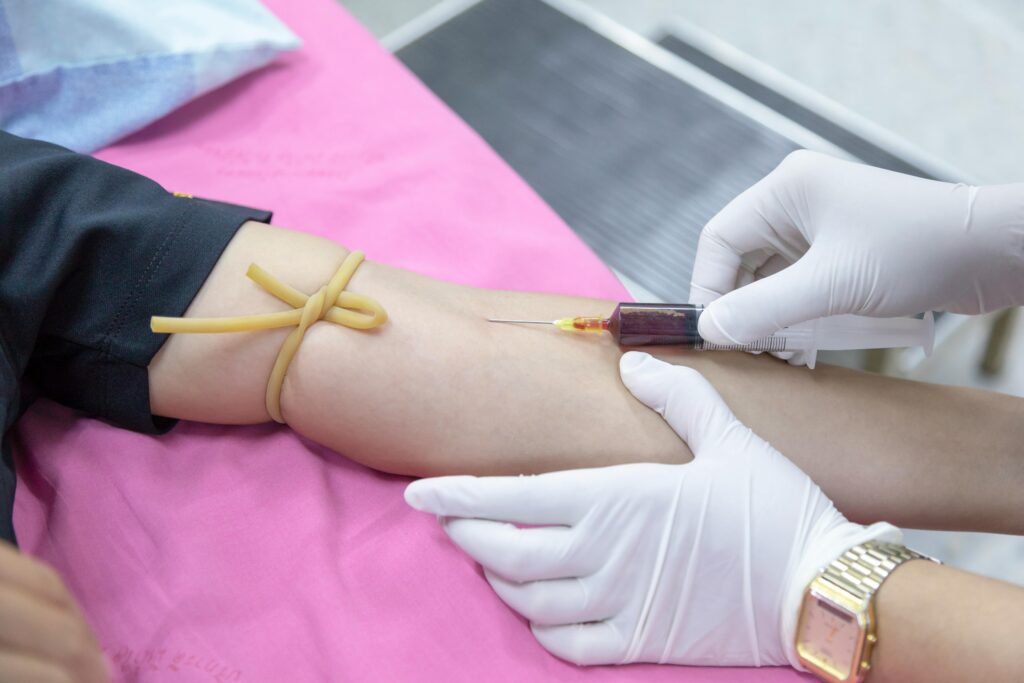Hepatitis C is a liver infection cause by the hepatitis C virus (HCV) that leads to inflammation, damage, and in some cases cirrhosis or cancer of the liver. Although in most cases, there are no symptoms present when initially exposed to hepatitis C the virus can destroy liver tissue over time. In this article, we will discuss what hepatitis C is along with its routes of transmission — as well as how you can stay safe and access treatment.
What is Hepatitis C?
The hepatitis C virus (HCV) mainly infects the liver and ultimately leads to complications of hepatitis C. If left untreated, it can cause severe problems such as chronic liver disease, cirrhosis (scar tissue forming on the liver) and liver cancer. In fact, hepatitis C is a top 10 cause of liver transplants in this country.
With hepatitis C, the virus can remain silent in an infected person for many years, even decades — unlike some other viral infections. Hence, this is the reason it is known as a “silent” disease of virus. If left untreated, however, it can lead to progressive damage to the liver.
How is Hepatitis C Spread?
Hepatitis C is mainly transmitted through blood-to-blood contact. This allows him to be communicated in a number of means:
Use of Contaminated Needles Or paraphernalia-This is how hepatitis C is most commonly transmitted,especially in inject users.

Blood transfusions or organ transplants (before 1992): Before common blood screening, recipients of blood transfusions or organ transplants may have been infected.
Medical negligence: For instance, using dirty needles/equipment while performing a medical procedure. Although less frequent today in developed countries, it remains a threat elsewhere.
Mother to baby: An infected mother can transmit Hepatitis C to her child at birth, but the risk is quite low.
Sexual contact: Hepatitis C is not as easily transmitted sexually, but it still can be passed on this way, especially when there are blood or open sores.
Who is at Risk?
Hepatitis C is a viral infection that anyone can get, but there are some groups of people who have an increased risk. These include:
Injecting drug users, particularly those that share needles or other injecting paraphernalia.
Anyone who had a blood transfusion or organ transplant before 1992, the year that testing of blood donations started to become routine.
Individuals living with HIV, because the virus is more easily transmitted in people with weakened immune systems.
Healthcare workers who accidentally stick themselves with needles through sham.
Baby Boomers (people born between 1945 and 1965): This group is at higher risk for prior exposure to the virus pre-blood screening, so the CDC now recommends everyone born during this period be tested for hepatitis C.
Symptoms of Hepatitis C
Hepatitis C often does not present with symptoms for most, and it can take a decade or longer before someone even knows they have the virus when people feel completely well. Mild symptoms might occur in some, including:
Tiredness (always fatigues)
Pain in the belly (especially in upper right abdomen)
Brown or yellow color of the skin or eyes (Jaundice)
Dark urine and light stools
A sign of losing appetite or unplanned weight loss
Joint pain or muscle aches
Hepatitis C, if left untreated, can progress to later stages involving cirrhosis, liver failure or cancer of liver. It may surprise you to learn that around 15-25% of people infected with hepatitis C will spontaneously clear the virus from their body. But from there, the majority of people will go on to develop chronic infection, which needs to be treated to avoid complications.
How is Hepatitis C Diagnosed?
Knowing if you have hepatitis C can only be done through testing. Testing usually follows a two-pronged fundamental process, consisting of
HCV antibody test: This test looks for antibodies to the hepatitis C virus in your blood. If you get a positive result, it means there has been contact with the virus in your past.
HCV RNA Test — Follow-up test to see if the virus is still in your blood if the antibody test is positive. Another test that quantifies the viral load as well as the extent of liver damage.
You should be tested for hepatitis C on a regular basis if you are at risk. If there is some liver damage, early detection can help you restore the health of your liver and good treatment will follow.
Treatment for Hepatitis C
Hepatitis C is treatable and can be cured with modern antiviral drugs — good news if you get diagnosed. Indeed, the current medication cure rate for hepatitis C is in excess of 90%. Usually, a treatment course consists of direct-acting antivirals (DAAs), which target different steps in the life cycle of the hepatitis C virus.
The treatment courses generally range from 8 to 12 weeks, and side effects are often mild in comparison to older therapies. Typically most treatments are done on an outpatient basis, no hospital stay required. If you have hepatitis C, treatment is effective and can lead to a cure, which helps prevent liver damage and related complications.
How to Prevent Hepatitis C
The most effective way of avoiding hepatitis C is to minimize the risk of infection with the virus. These are steps you can take to protect yourself.
Use new, sterile needles every time you inject drugs: If you use injectable drugs, never share needles or other drug equipment. Get the help you need through an addiction treatment program.
Hepatitis A and B vaccine — There is no hepatitis C vaccine, but you may want to be immunised against the other types of hepatitis to protect your liver and reduce the risk of complications.
If you have more than one sexual partner, use condoms to minimize the risk of blood during sex and practice safer sex.
Safe Medical Behaviors — If you will be doing a medical procedure, make sure that clean, sterile parts are being used.
Be tested: If you are at risk, speak to your doctor about being tested for hepatitis C — early diagnosis is vital in order not to create greater irreversible liver damage disease.
Conclusion
Heptatitis C is a common and serious kind of liver infection which has no clear symptoms that could indicate he disease for years on end yet can be cured with persistent treatment. But hepatitis C can be managed very effectively, and most people treated are cured with modern antiviral treatment when diagnosed through regular testing. If you are at risk for hepatitis C, please discuss with your primary health care provider the importance of getting tested. There are definitely things that one can do for hepatitis C preventive measures, but it nevertheless is a good idea to protect your liver wellbeing and so lower the probability of developing hepatitis C infection.
Hepatitis C: If you have it, you are not alone. Not to worry—there are effective treatment options available, and with the appropriate amount of care you can manage the virus while living a full and healthy life.

